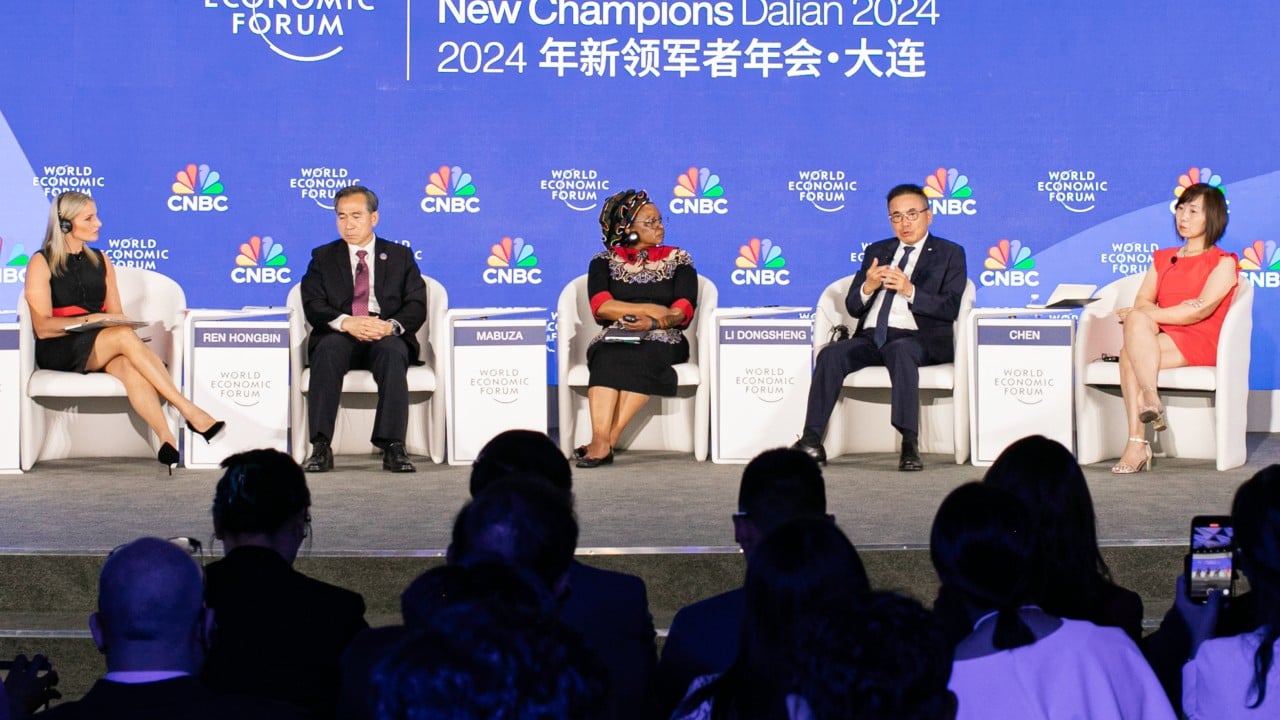Despite rising economic tensions and trade barriers, China would never give up tapping the US market for exports, said a top Chinese official on international trade.
“We are still willing to deepen cooperation with the United States in trade and investment, because everyone knows that the essence of Sino-US trade is win-win cooperation,” said Ren Hongbin, chairman of the China Council for the Promotion of International Trade – a trade body affiliated with the Ministry of Commerce.
“Our biggest export market is in no doubt the US,” Ren added during the World Economic Forum’s Annual Meeting of the New Champions – also known as Summer Davos – on Tuesday in Dalian.
In 2023, China was dethroned as the top source of US imports for the first time in 17 years after being outpaced by Mexico in terms of total value of goods shipped amid Washington’s tariff and supply-chain diversification efforts.
“Traditional markets are still very important to us, and we work hard to develop emerging markets, so both are important,” added Ren, who is also a former commerce vice-minister.
Emerging markets and developing countries account for 56.7 per cent of China’s trade volume, exceeding traditional partners like the US and Europe, he said.
Geopolitical tensions and protectionism are the biggest challenges facing international trade, which have pushed up costs and disrupted global trade flows, Ren added.
Last month, the US announced sharp tariff increases on a range of Chinese new-energy imports, including a 100 per cent duty on electric vehicles (EVs) – even though the US imports very few from China.
The European Union announced earlier this month that it would raise tariffs on Chinese EVs by up to 38 per cent from next week following a seven-month investigation.
And Canada also said on Monday it was considering whether to impose tariffs on EVs from China.
Li Dongsheng, founder and chairman of electronics giant TCL, said that economic globalisation was driven by market forces, and disrupting the trade flow with administrative power was an “unsustainable” approach.
“As an enterprise, we are quite helpless. We cannot influence the decisions of the US government, nor can we influence the decisions of governments of other countries, but I believe that the general trend of economic globalisation is unchangeable,” Li also said during the World Economic Forum event in Dalian.
It may not be good news for American consumers, because this extension of the route will definitely increase costs.
The US is the biggest export market for TCL, whose major products include televisions, washing machines and small electrical appliances, Li added.
“In the past, we purchased parts and materials from the US, then assembled the products in China and exported them to the United States. This trade route was the most efficient,” Li said.
But after the US raised tariffs on Chinese products, TCL must first make the core components in China and then ship the parts to the likes of Vietnam and Mexico to be assembled into the final products, he said.
“So the trade routes become a triangle,” Li said. “We still maintain our sales in the US market, and the positive result is that we have made greater value contributions to the economic development of these countries, such as in Southeast Asia.
“But it may not be good news for American consumers, because this extension of the route will definitely increase costs.”
Li added that China’s manufacturing sector accounted for 30 per cent of global output, but as the share should not increase any more, companies should go overseas by exporting their manufacturing capacity instead of just exporting goods.
“The development of China’s manufacturing industry should provide opportunities for other countries around the world, especially those countries with relatively backward industries … and make greater contributions to the growth of the global economy,” he said.


